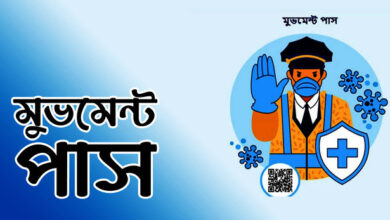What type of food should a sports person eat
What athletes eat in a day?
An Olympic athlete’s daily meal plan looks something like this: 55-60 percent of their daily calories come from carbohydrates, including vegetables, fruits, and whole grains. 15-25 percent of their daily calories come from lean proteins, fish, poultry, beans, and low-fat dairy.
What do athletes need in their diet?
It should include foods full of calcium, iron, potassium, and fiber. You also need key vitamins in their diet, such as A, C, and E. Try not to be tempted by junk foods, which are an empty source of calories. Instead, focus on lean meats, whole grains, and a mixture of fruits and vegetables to fuel your body.
What foods do athletes avoid?
There are certain foods that an athlete should avoid at all cost.
- Anything with high-fructose corn syrup. Sweets and candies may provide a quick energy burst, however these foods are filled with sugar and empty calories. …
- Foods cooked with oil or containing trans fats. …
- Avoid protein and energy bars.
Do athletes eat junk food?
Not so for Olympic-level endurance athletes like distance runners, cyclists, triathletes, and swimmers, who burn through calories so fast they have to consume piles of junk food to ensure they have enough fuel in the tank.
How do you eat like an athlete?
Make sure you get high-performance carbohydrates, proteins, fats, fruits, veggies and dairy (if tolerated) every day. Try to get as many food groups as possible at every meal and snack. Keeping properly hydrated is essential to performance. Your body cannot function at peak level if you are low on fluids.
Is milk bad for athletes?
Yes. Milk is an effective post-exercise drink that results in an increased muscle protein metabolism. This leads to an improved net muscle protein balance.
Do athletes eat rice?
Rice, as part of a carbohydrate-rich post workout meal, ensures that your muscles are re-stocked with glycogen (muscle energy). Taking in carbohydrate-rich foods, such as rice along with fluids within 30 minutes after exercise is important.
Is rice good for athletes?
Consuming white rice as a main carbohydrate source for athletes comes down to a matter of replenishing glycogen levels and helping to provide quick bursts of energy. This is helpful for those who are resistance training as well as endurance athletes as well.
Which fruit is good for sports?
Strawberries. In addition to citrus fruits, the American Dietetic Association lists strawberries as optimum sources of vitamin C for athletes. Vitamin C helps your body fend off infections and produce collagen, which holds muscles and bones together.
Do athletes eat pasta?
Basically, it’s true: pasta makes an excellent meal for athletes, particularly those engaged in endurance sports. Why? Simply because pasta is rich in complex carbohydrates and these carbs are the first source of energy used by our muscles.
Which athletes drink milk?
5 Olympic Athletes Who Refuel With Real Milk
- Elle Purrier St. Pierre – Track.
- Katie Ledecky – Swimming.
- Mykayla Skinner – Gymnastics.
- Bill Kolinske – Beach Volleyball.
What vegetables do athletes eat?
Examples of green leafy veggies include spinach, mustard greens, arugula, kale, turkish kale, brussel sprouts, swiss chard and lettuce. These vegetables are nutrient powerhouses that are also relatively low in total energy so are an easy inclusion for all athletes, regardless of energy demands.
What drinks do athletes drink?
Sports drinks like Gatorade, Powerade, and All Sport can give you a needed energy boost during your activity. They are designed to rapidly replace fluids and to increase the sugar (glucose) circulating in your blood.
What fruit do athletes eat?
Cherries are one of the most antioxidant-rich fruit and provide a wide range of health benefits, as well as performance and recovery benefits for athletes. Research has shown that runners who consumed tart cherry juice, twice a day for seven days a week, had strikingly less muscle pain following a long-distance run.
What should an athlete eat for lunch?
Lunch nutrition for athletes
- Main: Peanut butter and jelly sandwich on whole wheat bread with natural peanut butter. Side: Greek yogurt and an apple. …
- Main: Turkey sandwich on whole wheat bread with cheese, mustard or mayo. Side: Cherry tomatoes and pretzels. …
- Main: Tuna salad sandwich on whole wheat bread.
What do athletes do?
The Thesaurus dictionary defines an athlete as “a person trained or gifted in exercises or contests involving physical agility, stamina, or strength; a participant in a sport, exercise, or game requiring physical skill.” But being an athlete involves more than just being strong and competing in athletic events.
Is rice bad for stamina?
Carbs are the main source of fuel for your body and brain. Says Priya Kathpal, nutritionist, “Carbs are the food that the body uses to get glucose, which provides energy. Complex carbs are present in foods like bread, pasta and rice, which unlike simple carbs, keep you feeling energetic all day long.”
Are eggs good for athletes?
The egg, consumed in moderate amounts and properly handled, is a safe and adequate food for more active athletes and groups.
Is chicken good for athletes?
Sports performance requires a high-performance muscle. However, white meat, like chicken, promotes muscle development, maintains our muscles and participates in recovery. Chicken contains proteins of good nutritional quality with an excellent amino acid content, hence its interest in sports performance.
Which fruit increases stamina?
Bananas. Banana is one food that is loved by most people, irrespective of their age. It also happens to be one of the best foods to increase stamina. This fruit is rich in carbohydrates and also has natural sugar and starch which gives you the energy to keep going throughout the day.
Do athletes eat fruit?
To optimize athletic performance and have a functional role in recovery following strenuous exercise, athletes of all ages need the variety of vitamins and minerals found in fruits and vegetables that help maintain a strong and healthy body.
What causes low stamina?
Some people will suffer with a decrease in stamina and fitness levels following an underlying respiratory (lung) problems, cardiac (heart) problems or general fitness or mobility problems. They will find they are able to do less than they could previously do.

